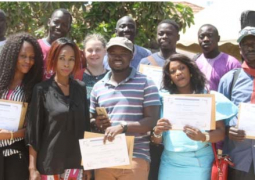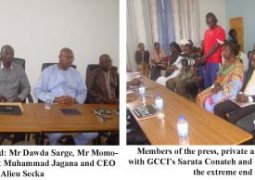A Participatory Natural Resource Management Specialist, Mr. Kanimang Camara, who doubles as the Regional trainer for Africa region on Enterprise Development, has disclosed that there are more than one million people living in poverty most of whom rely heavily on forest products for all or part of their livelihood.
Mr. Camara made these remarks last Thursday during an interview with the Point at his Tabokoto resident.
He said forest and trees represent a source of food, fodder, medicines, building materials and cash. He added that economic liberation and government decentralization opens new markets for forest products, and gives local communities new opportunities and new responsibilities in the management of the resource.
According to Mr. Camara, it is widely recognized that financial viability of forest-based enterprises needs to be complemented with environmental and social sustainability. "Through Community-Based Enterprise Development CBED, Mr. Camara asserted, "FAO promotes the setting up of small-scale, community-based tree and forest products enterprise. For Mr. Camara, the aim of the CBED is to enhance the capacity of local communities so that they can benefit from new market opportunities while at the same time having greater incentive to better manage and protect their resource base. He said community-based tree and forest product enterprises are supported with the help of participatory methodologies such as the ME and D approach, which operates within the framework of participatory forest mechanisms that enable those people who have a direct stake in forest resources to be part of decision-making in all aspects of sustainable forest management, including the development of viable tree and forest enterprises.
Read Other Articles In Article (Archive)





